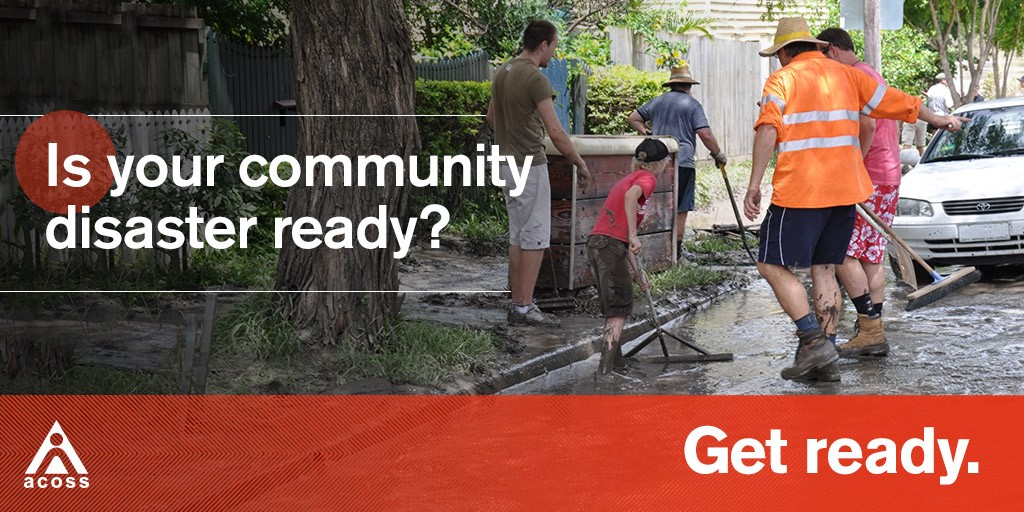Get resilient: free resource for community organisations to prepare for climate change and extreme weather
Did you know 25% of community organisations think they would close for good after an extreme weather event?
Research undertaken by the Australian Council for Social Service (ACOSS) shows that community organisations have very little resilience to the impacts of climate change, particularly extreme weather events. After a severe event such as a flood, cyclone or bushfire, up to 50 per cent of organisations would still be out of operation after a fortnight, and up to 25 per cent might never provide services again. [1]
 The research revealed a similar lack of capacity amongst organisations to manage disruptions to essential services such as power, water supplies and telecommunications networks. Respondents also reported high levels of under-insurance for climate-related disruptions, including for business continuity.
The research revealed a similar lack of capacity amongst organisations to manage disruptions to essential services such as power, water supplies and telecommunications networks. Respondents also reported high levels of under-insurance for climate-related disruptions, including for business continuity.
Despite this lack of preparedness, organisations expressed a clear willingness to undertake a range of actions to support their own and their clients’ preparedness for climate change and extreme weather. More than 60 per cent reported they’d like to undertake climate change risk assessments, to develop adaptation plans and to help clients prepare; over 80 per cent were interested to work collaboratively with other agencies to deliver services during and after extreme weather events. The key barriers preventing organisations taking these actions included a belief that action to adapt to climate change is beyond organisations’ scope, and a lack of sector-specific information.
Free resilience resource for community organsiations
In recognition of the community sector’s vulnerability to climate change and extreme weather, ACOSS has developed a new online resource, Resilient Community Organisations. The resource has been designed specifically for community sector organisations, both big and small, to understand how climate change might affect them, and how to get ready. It includes a benchmarking tool as well as a step by step process to help organisations become resilient. The resource includes advice and information on leadership, building networks, knowing and managing risks, preparing others, and learning and inspiring.
The resource is easy to use – you can start and stop as often or as little as you like – you can choose the areas that suit your organisation and circumstances best – and best of all it is free.
[1] Mallon K et al, Adapting the Community Sector for Climate Extremes, National Climate Change Adaptation Research Facility, Gold Coast, pp. 286. 2013
